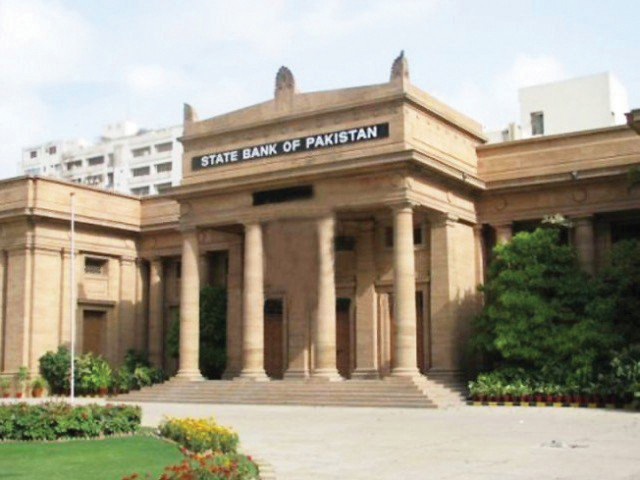Central bank’s independence and its practicality
Current talk to give more autonomy is devoid of practical significance.

At a low level of development, it is not a good move to grant autonomy to a central bank where coordinated monetary and fiscal policies are required. PHOTO: FILE
The way the finance ministry quickly intervened to arrest dollar appreciation is not liked by many media commentators and independent economists. They have started to argue that there is a need to make the central bank independent.
SBP’s foreign exchange reserves plunge 4.44%, amount to $15.48b
The question arises as to why central bank independence is important. Most commentators would argue that central bank independence is the key to price stability.
This argument has started to lose appeal after the global financial crisis of 2008. Since then, the central banks have been trying to achieve the targeted inflation level while inflation is running below the target level.
There is a fierce debate in developed economies to move away from this targeted inflation level under the current abnormal circumstances. On the other hand, multilateral institutions are towing the same old line of inflation targeting for the developing countries.
These institutions have been recommending to the developing countries that they should adopt the model followed by the Federal Reserve which enjoys complete autonomy in its affairs. In order to make a case, they exemplify the independence of the Federal Reserve. Here comes the case of comparison. Can we compare a developing country central bank with the Federal Reserve? The answer is perhaps not.
The Federal Reserve came into inception in 1913 and emerged from the confederation of private banks. Under that case, its independence was required to control private banks.
Policy coordination
On the contrary, the central bank operates in a different setting in a developing country. At a low level of development, it is not a good move to grant autonomy to a central bank where coordinated monetary and fiscal policies are required.
This coordination is only possible through the influence of the finance ministry since most of the problems in developing countries are of structural nature. When problems are of structural nature, the role of the finance ministry becomes pivotal.
Revenue shortfall: FBR misses tax collection target by over Rs250b
The case of Pakistan is not much different. The State Bank of Pakistan (SBP) has got a lot of independence in overseeing and monitoring financial institutions over the years.
This shows that the SBP has got operational independence. What about the conduct of monetary policy? In this case, the SBP has got a reasonable level of independence. The influence of the finance ministry increases to streamline the coordination between fiscal and monetary policies, which is even fine under the current conditions.
The move of the ministry to stabilise the rupee has got a kind of path dependence. The finance minister arrested the depreciation of the rupee in the past. He did the same thing recently as is obsessed with the stability of the rupee. He thinks that a stable rupee is the key since the government has done a lot of external borrowing in the last four years.
In order to stabilise the rupee at the current level, the government is willing to take short-term commercial loans since this borrowing helps in either bolstering or maintaining the foreign exchange reserves.
If the rupee depreciates, it will increase the debt servicing cost a great deal. In addition, imported inflation may go up, which the government intends to avoid at all cost close to general elections. In a nutshell, the central bank may have limited independence in the context of developing countries. The SBP has already got that much independence.
The current talk to increase the independence of the central bank is devoid of practical significance. The situation demands that we go for a workable solution rather than a perfect one.
The writer is an assistant professor of economics at SDSB, Lahore University of Management Sciences
Published in The Express Tribune, July 31st, 2017.
Like Business on Facebook, follow @TribuneBiz on Twitter to stay informed and join in the conversation.



















COMMENTS
Comments are moderated and generally will be posted if they are on-topic and not abusive.
For more information, please see our Comments FAQ